6 of the best: Jimmy Chamberlin on Smashing Pumpkins classics and jazz explorations
Technical master looks back on the Pumpkins, jazz sessions and more
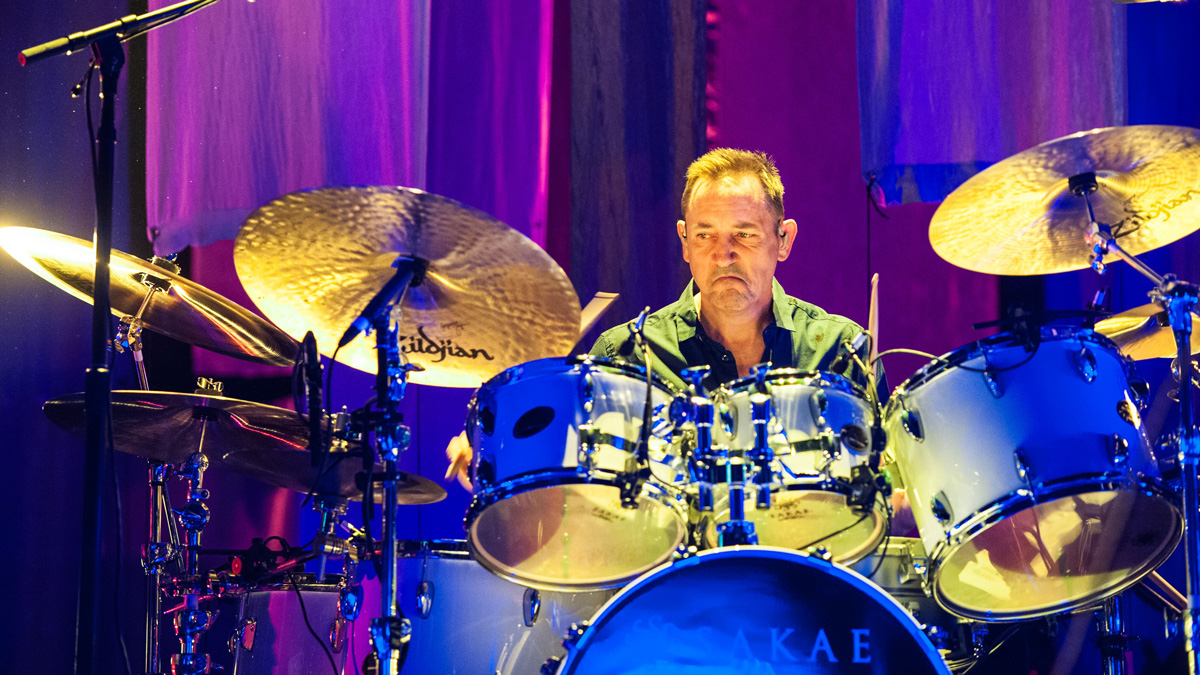
Reflections of a technical master
When we think of the defining American rock drummers of the early ‘90s, it’s easy to go straight down the grunge rabbit hole and instantly blurt out Grohl, Cameron et al.
And while the Seattle scene indeed gave us some incredible players, at the same time over in Chicago, Jimmy Chamberlin was changing the game with the Smashing Pumpkins.
As a jazz-loving, big band player, Chamberlin added stunning virtuosity and complexity into Billy Corgan’s dark blend of gothic rock and dream pop. Across a run of classic albums, Chamberlin became integral to the Pumpkins; his immensely-technical-yet-beautifully-delicate playing offering the perfect foil for melodic genius Corgan.
It’s not just the Pumpkins that Chamberlin has in his back catalogue. In spells away from the band he also launched his own side project - the Jimmy Chamberlin Complex - and recorded several times with jazz artist Frank Catalano. Here, the man himself looks back on some of his many career highlights.
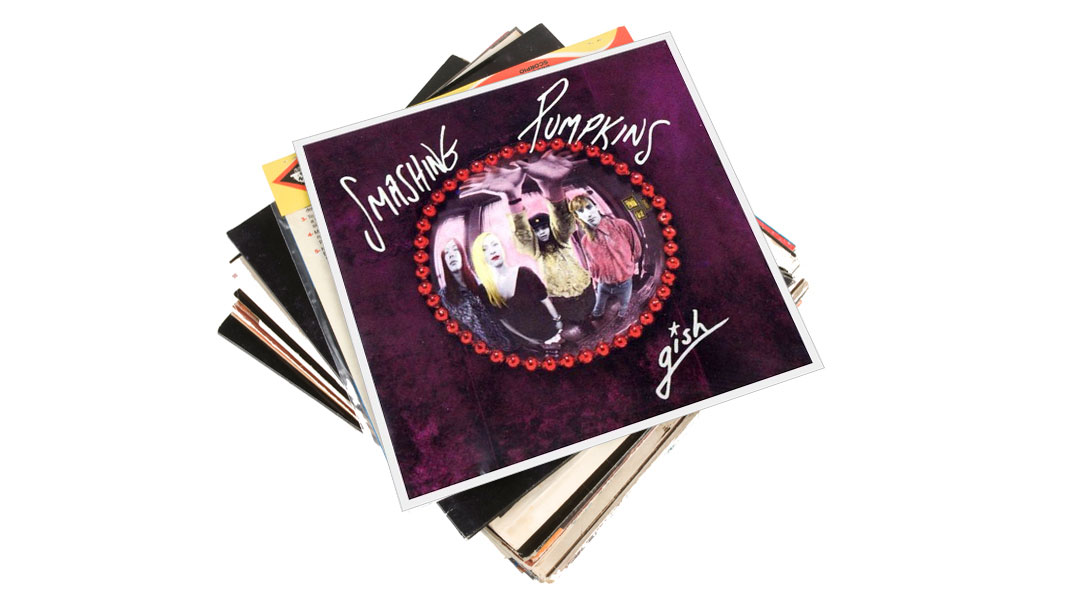
1. Smashing Pumpkins - Gish (1991)
“Billy [Corgan] really embraced the way that I played when I joined The Pumpkins. The band sounded significantly different when I joined to the band we became.
“They had been using a drum machine and a lot of the early stuff was more reminiscent of Joy Division. If they had kept on that tact there probably wouldn’t have been much for me to do. I was playing in a ten-piece show band at that time doing big band and show tunes.
There’s some tightrope walking in the performances. We worked with Butch Vig and the drums on Gish were extremely well-recorded.
“I was listening to a lot of Tony Williams, Weather Report and that type of stuff. I think Billy saw in me a vehicle where he could be more progressive and complex. Gish is an embracing of the skillset that he and I had. I hear a lot of maturity in the playing on that record.
“That wasn’t through playing thousands of gigs, it was maturity from the things I was listening to. That was Jim Gordon, Steely Dan and those types of things. We didn’t have a tonne of money so I think all of the songs except for ‘Snail’ were done in one take.
“We reeled them off. That’s, to me, why they still sound good. There’s some tightrope walking in the performances. We worked with Butch Vig and the drums on Gish were extremely well-recorded. They went on to be sampled by lots of artists; back in the ’90s I would get cheques from everybody from Depeche Mode to House Of Pain for using my drum sounds.”
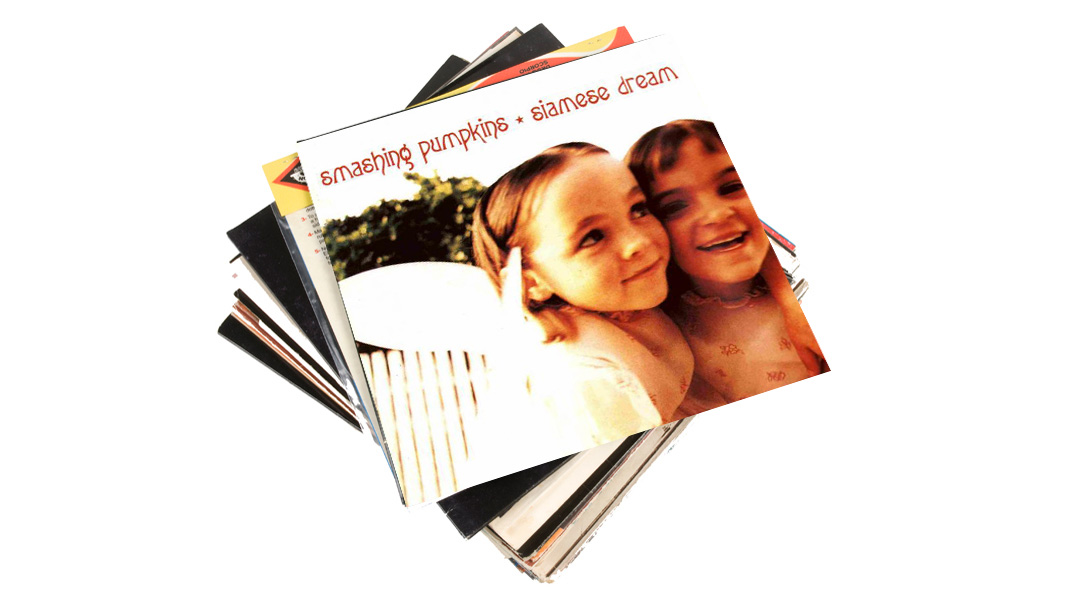
2. Smashing Pumpkins - Siamese Dream (1993)
“When Butch walked in and first heard us playing the songs from Gish I think he said, ‘Woah! What’s going on?’ But once he got his head around it, particularly by Siamese Dream, he understood where the power of the band came from and left us to it.
“By the time we got to Siamese… I had made enough money to buy my first Maple Custom Yamaha kit. We knew that we had a record that was representative of the best of our abilities. Billy stepped up to the plate and more with the songwriting. If you look at Silverfuck and Geek USA and the licence that I had as a drummer in a band that was going for pop success was pretty remarkable.
“I was playing flamacues over verses and all kinds of crazy s***. We managed to reel it in and make it sound like a cohesive piece of work. We certainly knew that songs like Today and Cherub Rock had a shot but you never knew what the market would dictate and whether one day spandex would come back and grunge would go away.”
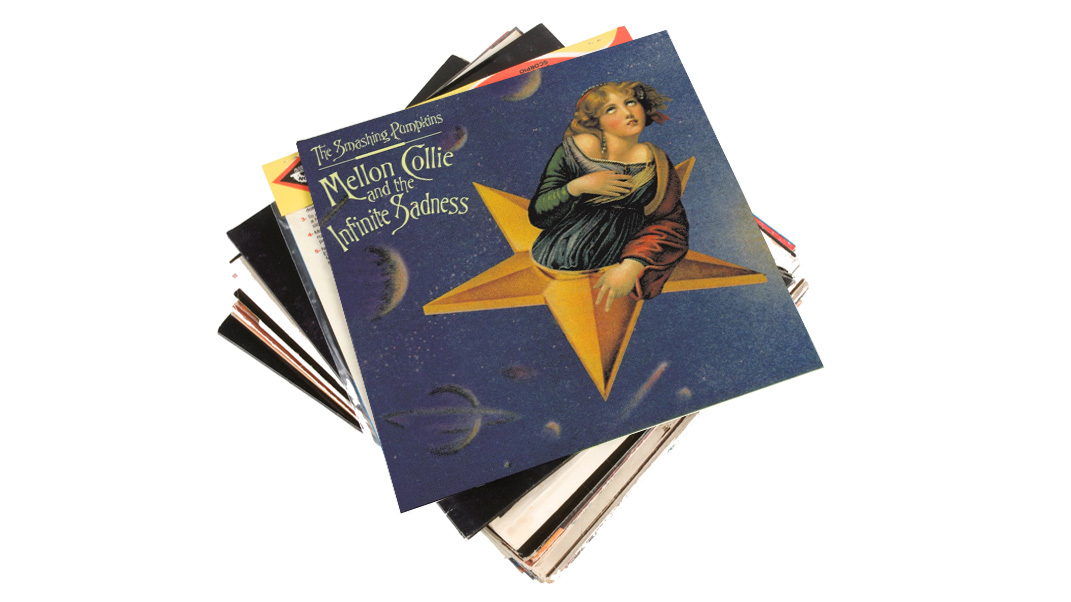
3. Smashing Pumpkins - Mellon Collie And The Infinite Sadness (1995)
“You have to remember that on these albums it was just Billy and I recording - James [Iha] and D’arcy [Wretzky] did very little in the studio.
“As a drummer you have to use an incredible amount of imagination to guess what other things will sound like. There’s a lot of talking about the intent and looking at the lyrics. This was a massive undertaking. It was just what we did. From the outside looking in, we were in a cave for six months and we came out with this massive piece of work, and you might think it was a torture chamber, but it wasn’t really; it was just what we did every day.
Flood made me think out of the box. Some days I’d show up and all of my cymbals would be missing and he’d want me to write a drum part without any cymbals
“Some things were more difficult than others but when you listened to this stuff you knew why you worked so hard. We worked with Alan Moulder and Flood on this album and Flood had a totally different opinion of the drummer’s role than Butch, but in the best possible way. Flood challenged me to become something different.
“It taught me that you have to evolve. Flood made me think out of the box. Some days I’d show up and all of my cymbals would be missing and he’d want me to write a drum part without any cymbals. Flood might choose drum takes that I didn’t even think were that great.
“There are imperfections in there and Flood taught me that it’s more about the vibe and the emotion than something being right or wrong. We knew Tonight, Tonight would be a big song for us. I had wanted to use that kind of orchestral, marching groove and I had that clave hi-hat part in my back pocket from guys like Alex Acuna.”
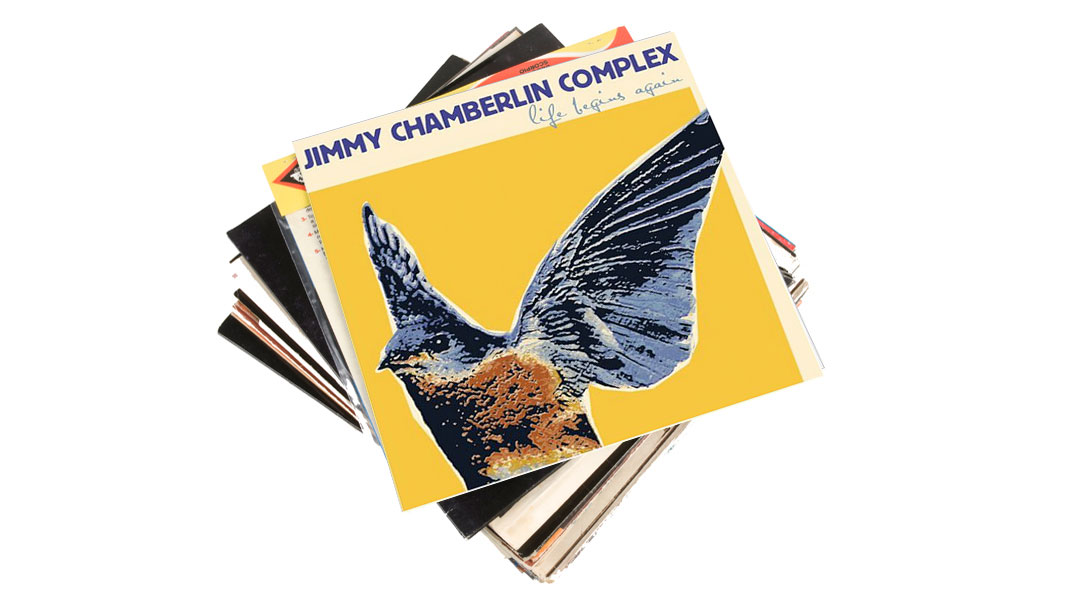
4. Jimmy Chamberlin Complex - Life Begins Again (2005)
“This album was a blast. I became a band leader, songwriter and producer and it was my name, so how was I going to represent that? Billy Mohler was the perfect foil for that. The core band really allowed my playing to come to the fore.
“It was a great experience. It was one of those things where we weren’t trying to make a commercial record, we were just trying to make something that sounded good to us that was reminiscent of what we were attracted to at the time.
We were trying to straddle the line on this album between dark synth pop and the next generation of fusion from the ‘70s.
“At that point I had become a Joy Division fan and had gone back and listened to that kind of stuff that the Pumpkins were influenced by earlier on and I was digging into that. We were trying to straddle the line on this album between dark synth pop and the next generation of fusion from the ‘70s. It is a truthful representation of what we were about at the time.”
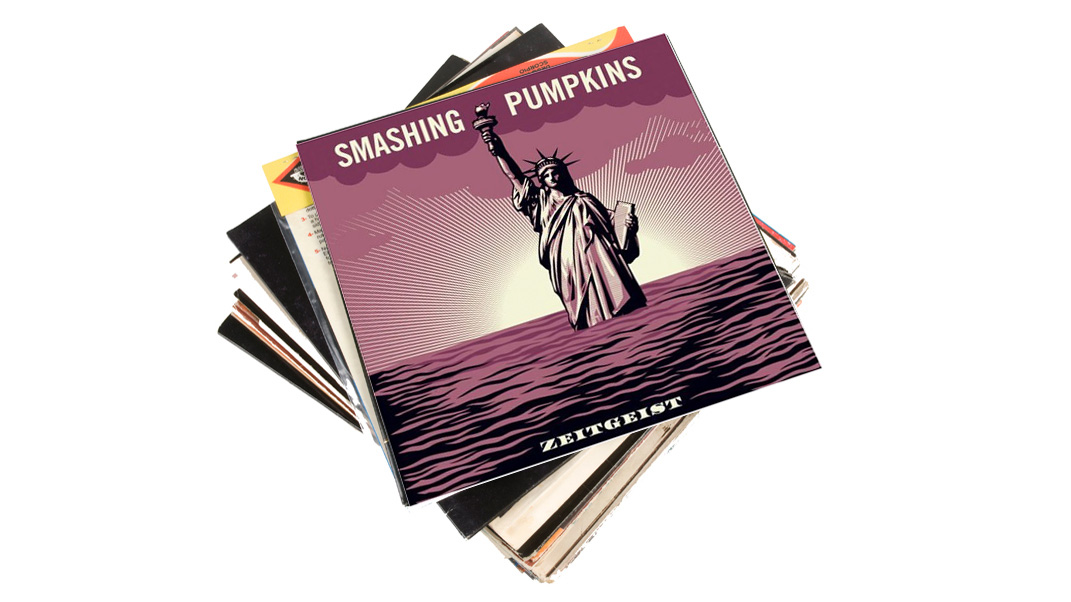
5. Smashing Pumpkins - Zeitgeist (2007)
“This was a totally different experience to the early Pumpkins. It was Billy and I trying to get back together.
“We spent about four months together writing the record. It was just the two of us so there was a lot of onus on the drums. The problem was that when you make a Pumpkins record it has to sound like a Pumpkins record. If we had made something totally different, how would that have been received?
I think we made that record a little premature. We should have put together a live band and played for a year-and-a-half
“On one hand, we really wanted to tap into bands like Pink Floyd but we hadn’t been back playing together long enough to translate that in the studio. I ended up listening to old Pumpkins and trying to find a middle ground between what we were going for with the vibe and the old Pumpkins.
“I think we made that record a little premature. We should have put together a live band and played for a year-and-a-half. With the old band we had a four-piece unit so you’d know how much space the bass would take or what a great tempo for the song would be.
“On this record, I was just guessing. Playing live you can see sometimes there can be a sea change in the audience when going from 96bpm to 100bpm, and you can then go back and apply that in the studio.”
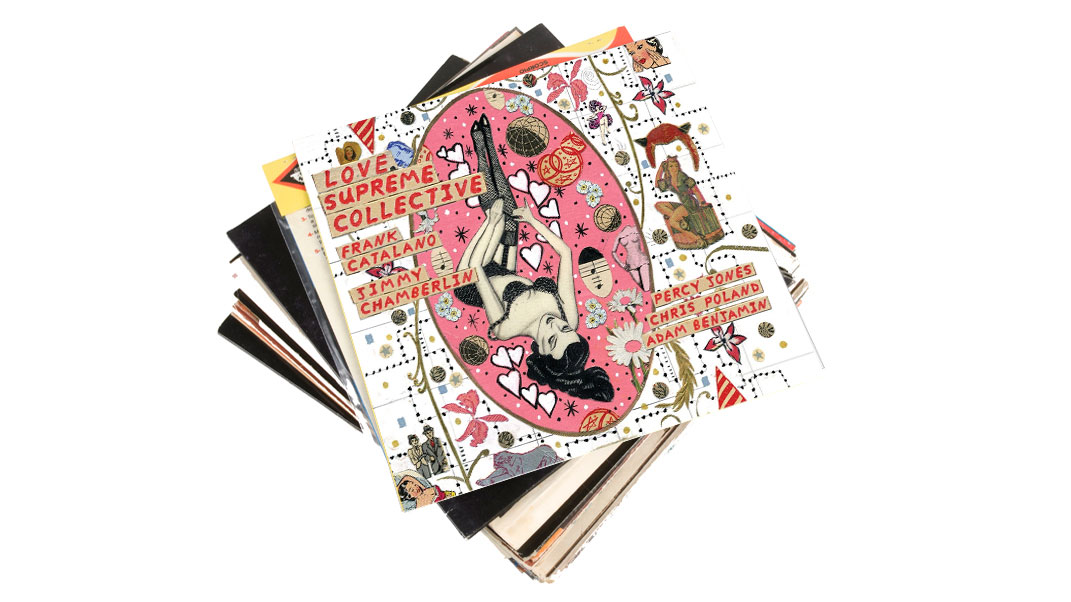
6. Frank Catalano - Love Supreme Collective (2014)
“I’ve worked on three records with Frank and this one was the most fun. We had Percy Jones on bass and that was incredible because I’m a huge Brand X fan. I would have played on anything just to have been able to play with Percy.
“We had no idea what we were going to do on that record. We just got together in the studio for one day and reeled that stuff off. I heard some of it on the radio the other day.
I haven’t listened to the whole record since recording it, but I heard a snippet on the radio and I was going, ‘Holy s**t, this is incredible, what is this?’
“I haven’t listened to the whole record since recording it, but I heard a snippet on the radio and I was going, ‘Holy shit, this is incredible, what is this?’ And then they said it was us! I was thinking, ‘Wow, we did that?!’
“It was a lot of fun to make that record. The great thing about playing that stuff is that it is all improvising. It took as long to make that record as it does to listen to it. There is a joy in that record. In rock ‘n’ roll you might make a record over a six-month period. You might capture the articulation, but as I get older it is more about whether there is some joy in the playing.”
Rich is a teacher, one time Rhythm staff writer and experienced freelance journalist who has interviewed countless revered musicians, engineers, producers and stars for the our world-leading music making portfolio, including such titles as Rhythm, Total Guitar, Guitarist, Guitar World, and MusicRadar. His victims include such luminaries as Ice T, Mark Guilani and Jamie Oliver (the drumming one).
